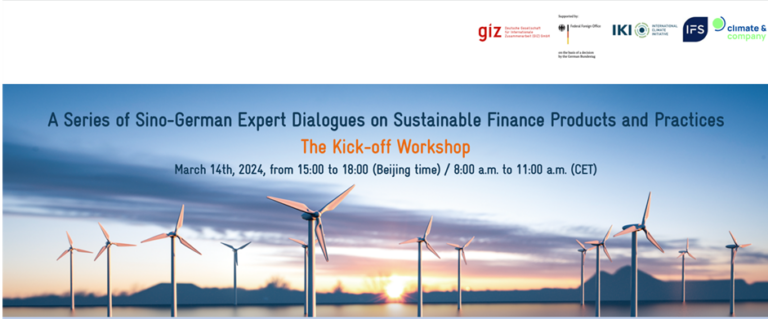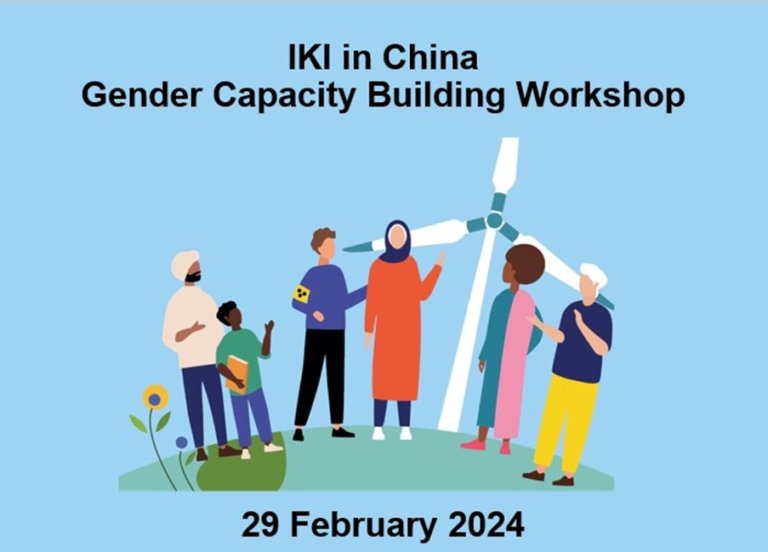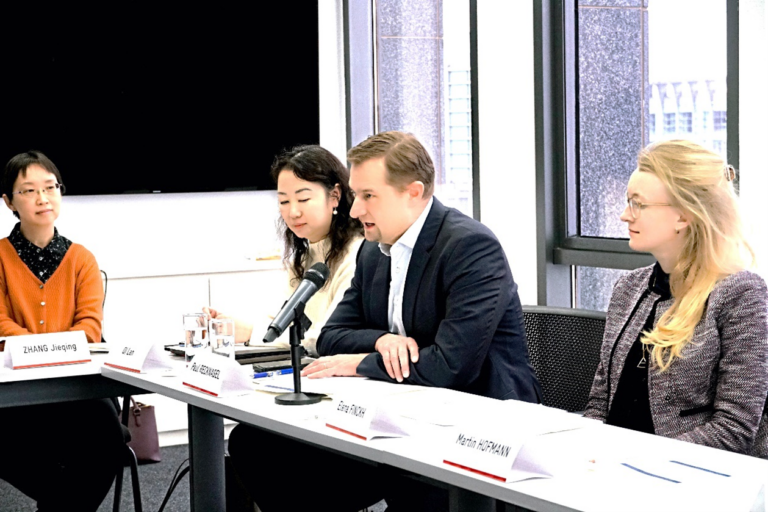At the meeting at the Sino-German Center of the Frankfurt School of Finance and Management on 18 May 2021, Dr. Alexander FISHER, Program Director for the Sino-German Cooperation on Biodiversity, Climate and Environment, presented current Sino-German projects in the field of climate and environment. The Sino-German Center supports the exchange of science, politics, and economy between China and Germany. The virtual roundtable focused on EU-China cooperation in sustainable finance, which is becoming increasingly important in China.
Dr. Karsten LÖFFLER, Head of the UNEP Collaborating Centre for Climate & Sustainable Energy Finance at Frankfurt School of Finance & Management and Chair of the Sustainable Finance Committee of the Federal Government of Germany, talked about the German government’s sustainable finance strategy, emphasizing that more information on risks and opportunities of sustainable finance should be collected and that this knowledge should be spread throughout the finance sector. Dr. LÖFFLER also stated that there are many opportunities for cooperation between Germany and China in the sector, however, he suspects that future requirements to assess climate impacts of investments from the EU side could constitute a potential barrier to deepened collaboration between financial institutions.
Dr. FISHER presented various examples of Sino-German cooperation, including the establishment of a Track-2-Dialogue on climate topics between Chinese and German experts, the Sino-German Working Group on Environment and Climate Change as well as cooperation on the topics of biodiversity and nature-based solution, reduction of non-CO2 greenhouse gases like N2O and HFCs, as well as water, soil, and air pollution. Dr. FISHER emphasized that while the majority of Sino-German cooperation includes climate finance aspects, it currently does not play a prominent role. He advertised for using existing collaborations in the climate sector as entry points to strengthen climate finance cooperation.
Dr. FISHER also presented the GIZ cooperation with the newly founded Chinese Climate Investment and Finance Association (CIFA), an initiative by the Department of Climate Change (DCC) of the Ministry of Ecology and Environment (MEE), which will support the Chinese government in accelerating sustainable finance flows. He further highlighted topics relating to climate finance that are of special interest to Chinese partners, such as financial aspects of the fossil phase-out, the cost of renewable energy, and German green federal securities.
Mr. Frank SCHEIDIG, Global Head of Senior Executive Banking at DZ BANK AG, Frankfurt, stated that climate finance is becoming ever more important, as trillions of dollars will be necessary to finance climate neutrality globally. As he points out, many small and medium enterprises have not yet begun to restructure their business processes and will need significant funding in the next years to do so. He suggests that China and Germany could take on a leadership role in global climate finance, also by finding viable solutions of public-private cooperation in climate finance.
Prof. WANG Yao, Director General of the International Institute of Green Finance, Beijing, stated that sustainable finance gained a lot of attention recently from both policymakers and market participants in China. For instance, the People’s Bank of China (PBoC), China’s central bank, is planning to improve its green finance policy framework by introducing green policy tools and incorporating climate risk factors into its risk management framework. The PBoC also considers launching green finance pilots in all Chinese provinces, increasing the number of pilot zones from six to over thirty.
However, Prof. WANG stated that transition finance is still underestimated as an element of sustainable finance in China and that additional finance is crucial to meet the 2060 carbon neutrality goal without creating too many stranded assets and increasing social injustice. To meet this financing gap, Prof. WANG said investments from both private investors in China and foreign investors should be attracted. To achieve this, transaction costs should be lowered, investment barriers removed, and standards harmonized. China and the EU are currently working to develop a common green taxonomy in order to facilitate international cooperation and encourage foreign investment.
Prof. WANG identified a lack of access to information as the biggest challenge of the green finance sector in China. Transparent and comparable emission data, which could be achieved by making ESG disclosures mandatory, would be necessary for investors to assess the sustainability of investments and for regulators to make effective policy decisions. Prof. WANG further stated that many financial institutions still lack awareness and practical methodologies to assess climate risks and recommended focusing on capacity building and methodologies tailored to financial institutions’ needs. Also, many sustainable finance products do not support the initial stages of projects due to high investment risks. This issue could be addressed by using innovative sustainable finance products like risk-sharing mechanisms to channel necessary capital to early-stage project development or funding of new technologies.
Overall, the four experts agreed that there is enormous potential for sustainable finance worldwide and that both countries could profit from deepening their cooperation in the sustainable finance sector.
Read more (EN)



